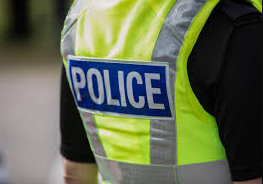
Union leaders, MPs and rights groups call for inquiry into ‘heavy-handed’ policing during January protest in London
The Metropolitan Police is facing increasing criticism over its management of a pro-Palestine protest in central London on 18 January, which led to the arrest of over 70 individuals. Trade union leaders have joined a growing number of voices, including legal experts, MPs, and human rights organisations, in calling for an independent investigation into what they describe as “repressive and heavy-handed policing.”
The latest criticism came in the form of a letter to Home Secretary Yvette Cooper from union leaders, who joined a chorus of others demanding an inquiry into police actions during the demonstration. Amnesty International has also raised concerns, with reports of police violence towards vulnerable protesters, including children, pregnant women, and elderly individuals. Green Party London Assembly member Zoë Garbett reported that over 150 people contacted her, sharing accounts of violent policing and the use of kettling tactics.
Met Police Commander Adam Slonecki, who led the operation, defended the force’s actions, stating that protest organisers had intentionally breached agreed-upon conditions and attempted to march out of Whitehall, labelling the actions as a “serious escalation in criminality.”
While previous protests since Israel’s military actions in Gaza began in October 2023 had been relatively peaceful, tensions escalated during this demonstration due to restrictions on the protest route and a series of arrests, including those of prominent figures like Palestine Solidarity Campaign (PSC) director Ben Jamal and Stop the War’s chief steward Chris Nineham. Jamal and Nineham now face charges related to public order offences.
Police stated that 60 of the 77 arrests were due to protesters violating conditions meant to protect a nearby synagogue. However, organisers and attendees, including Green Party deputy leader Zack Polanski, argue that many were detained arbitrarily for unintentionally stepping outside an unclear protest zone.
Union leaders, including those from the Public and Commercial Services Union (PCSU), the Communication Workers Union (CWU), and several transport unions, expressed concern over the use of heavy-handed tactics, drawing parallels with previous instances where police responses were seen as attempts to suppress democratic rights to protest and strike.
Khalid Abdalla, a British-Egyptian actor known for his roles in The Crown and The Day of the Jackal, compared the policing to tactics he had witnessed in Egypt, highlighting the broader implications for freedoms in the UK.
With another march planned for 15 February, the approach taken by the Met Police will likely come under even greater scrutiny, with the response to these growing concerns now set to influence future policing strategies.









